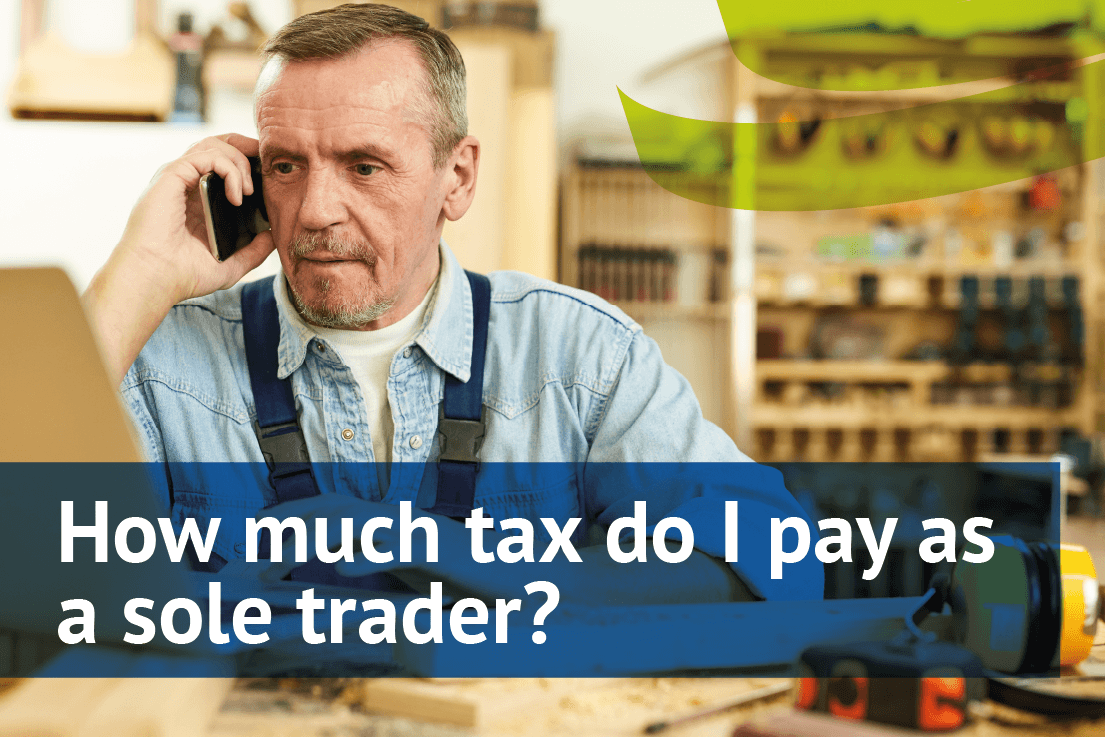How much tax do I pay as a sole trader?
22nd October 2020
Trying to work out if it’s worth incorporating your company/remaining incorporated? Unfortunately the answer isn’t always clear cut – especially as businesses continue to navigate the fallout of the global pandemic. Understanding how much tax you need to pay as a sole trader is key to deciding on the future of your business. In this guide we’ll be helping you do just that.
What is a sole trader?
Sole traders are individual self-employed business owners. Sole trader businesses are run as a sole proprietorship (also known as individual entrepreneurship or “one-man-band” businesses). This means there is no legal distinction between the individual and the business.
Unlike a limited company, sole traders bears full liability for any losses arising from the business – which can extend to any private property.
How much tax do I pay as a sole trader?
In legal terms, when you are a sole trader there is no difference between you as an individual and you as a business owner. As far as HMRC is concerned, any profits you receive as a business is your personal income and should be taxed as such.
Sole traders must complete a self-assessment tax return every year, which should include declarations of any other income you receive, including alternative employment where you are paid via PAYE, any dividends you receive (e.g. from another company or property).
As a sole trader you will be subject to the same tax rates as an individual. The tax income tax rates and bands for England, Wales and Northern Ireland for 2020/21 are as follows:
| Band | Taxable income | Tax rate |
| Personal allowance | Up to £12,500 | 0% |
| Basic rate | £12,501 to £50,000 | 20% |
| Higher rate | £50,001 to £150,000 | 40% |
| Additional rate | Over £150,000 | 45% |
Remember, you don’t get a personal allowance if your taxable income is more than £125,000 and the above table also doesn’t include any tax allowances or relief you may be eligible for. As a sole trader, your first £1,000 earned via self-employment is tax free.
Example 1:
Louise works part-time for her employer and earns £15,000. She also has her own businesses selling homemade gifts, with profits of £10,000 in the current tax year, making her annual income £25,000. After deducting her personal allowance of £12,500, she is left with a taxable income of £12,500. This falls within the basic rate band, so she must pay £2,500 in tax.
Example 2:
Rachel is a self-employed business consultant who takes home profits of £72,000 in the current tax year. After deducting her personal allowance of £12,500, she is left with £59,500 taxable income. £50,000 is taxed at the basic rate (£10,000) and £9,500 is taxed at the higher rate (£3,800) making her total tax bill £13,800.
Will I save money by incorporating?
There may be tax savings to be made by incorporating as a limited company but it’s important to bear in mind the ever-changing nature of the tax landscape. Limited companies incur higher administration and compliance costs, however many self-employed people prefer the security they offer.
Remember, tax is not the only consideration when deciding whether to operate as a sole trader or limited company. Changes to IR35 (now delayed to April 2021 as part of the Government’s response to Covid-19) are expected to impact many sole traders, as are rumoured increases to NICs.
Talk to the experts about how much tax you’ll pay as a sole trader or limited company
Understanding whether it’s better for you to operate as a sole trader or limited company is a confusing area and it’s highly recommended that you consult a professional before making a decision. Get in touch with our friendly team of tax experts, who can guide you through the options.





